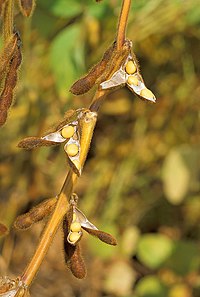
Formulation, characterization and antimicrobial properties of black cumin essential oil nanoemulsions stabilized by OSA starch
Sign Up to like & getrecommendations! Published in 2017 at "Journal of Food Science and Technology"
DOI: 10.1007/s13197-017-2800-8
Abstract: Preparation of oil-in-water nanoemulsions has emerged as a subject of interest for the encapsulation of lipophilic functional ingredients to increase their stability and activity. In this study, black cumin essential oil nanoemulsions (BCO-NE) using different… read more here.
Keywords: essential oil; oil nanoemulsions; oil; cumin essential ... See more keywords

Influence of viscosity for oil-in-water and water-in-oil nanoemulsions production by SPG premix membrane emulsification
Sign Up to like & getrecommendations! Published in 2019 at "Chemical Engineering Research and Design"
DOI: 10.1016/j.cherd.2018.11.027
Abstract: Abstract Oil-in-water and water-in-oil nanoemulsions are interesting carriers for respectively oil soluble and water soluble actives. In this study, oil-in-water (O/W) and water-in-oil (W/O) nanoemulsions were prepared by premix membrane emulsification. A coarse emulsion (premix)… read more here.
Keywords: water; membrane; oil; viscosity ... See more keywords

Controlled release of flavor oil nanoemulsions encapsulated in filled soluble hydrogels.
Sign Up to like & getrecommendations! Published in 2018 at "Food chemistry"
DOI: 10.1016/j.foodchem.2017.12.089
Abstract: The goal of this project was to create hydrogels, a type of soluble biopolymer delivery system to encapsulate flavored nanoemulsions that are released under artificial saliva conditions. Low methoxyl (LM) pectin and whey protein isolate… read more here.
Keywords: oil nanoemulsions; flavor; nanoemulsions encapsulated; flavor oil ... See more keywords

Physical properties, antifungal and mycotoxin inhibitory activities of five essential oil nanoemulsions: Impact of oil compositions and processing parameters.
Sign Up to like & getrecommendations! Published in 2019 at "Food chemistry"
DOI: 10.1016/j.foodchem.2019.04.032
Abstract: The influence of homogenization conditions on selected essential oil (thyme, lemongrass, cinnamon, peppermint, and clove)-in-water nanoemulsion formation and stability was investigated. Physically stable essential oil nanoemulsions could be fabricated by a microfludizer under optimized processing… read more here.
Keywords: essential oil; mycotoxin inhibitory; oil nanoemulsions; oil ... See more keywords

Antimicrobial activity of PIT-fabricated cinnamon oil nanoemulsions: Effect of surfactant concentration on morphology of foodborne pathogens
Sign Up to like & getrecommendations! Published in 2019 at "Food Control"
DOI: 10.1016/j.foodcont.2018.11.024
Abstract: Abstract The impact of surfactant concentration (10 to 20 wt%) on the antimicrobial activity of cinnamon oil nanoemulsions formed by the phase inversion temperature (PIT) method was studied against a number of foodborne pathogens: Escherichia coli, Salmonella Typhimurium,… read more here.
Keywords: antimicrobial activity; concentration; cinnamon oil; oil nanoemulsions ... See more keywords

The preparation, characterization and in vitro application evaluation of soluble soybean polysaccharide films incorporated with cinnamon essential oil nanoemulsions.
Sign Up to like & getrecommendations! Published in 2018 at "International journal of biological macromolecules"
DOI: 10.1016/j.ijbiomac.2018.01.145
Abstract: In this study, we developed the new bioactive film from soluble soybean polysaccharide (SSPS) incorporated with different concentrations of cinnamon essential oil nanoemulsions (CNO) and the functional properties of them were evaluated. Then CNO-SSPS film… read more here.
Keywords: soybean polysaccharide; essential oil; soluble soybean; cinnamon essential ... See more keywords

Optimization of cinnamon oil nanoemulsions using phase inversion temperature method: Impact of oil phase composition and surfactant concentration.
Sign Up to like & getrecommendations! Published in 2018 at "Journal of colloid and interface science"
DOI: 10.1016/j.jcis.2017.11.084
Abstract: Essential oils, such as those isolated from cinnamon, are effective natural antimicrobial agents, but their utilization is limited by their low water-solubility. In this study, phase inversion temperature (PIT) was used to prepare cinnamon oil… read more here.
Keywords: phase; oil nanoemulsions; surfactant concentration; oil ... See more keywords

Essential oil nanoemulsions for the control of Clostridium sporogenes in cooked meat product: An alternative?
Sign Up to like & getrecommendations! Published in 2021 at "Lwt - Food Science and Technology"
DOI: 10.1016/j.lwt.2021.111123
Abstract: ABSTRACT The antimicrobial activity of blend of essential oils and their nanoemulsions against Clostridium sporogenes inoculated in mortadella with sodium nitrite reduction (75 ppm) was evaluated. In addition, physicochemical analysis such as pH, residual nitrite,… read more here.
Keywords: clostridium sporogenes; meat product; oil nanoemulsions; essential oil ... See more keywords

Gate-Embedding Strategy for Pore Size Manipulation on Stainless Steel Mesh: Toward Highly Efficient Water-in-Oil Nanoemulsions Separation
Sign Up to like & getrecommendations! Published in 2019 at "Industrial & Engineering Chemistry Research"
DOI: 10.1021/acs.iecr.9b03263
Abstract: Separation of water-in-oil nanoemulsions is of great significance but difficult. In this work, using a facile brush-painting method, a paste containing PDMS, graphite, TiO2 and ethyl cellulose was coated on a low-mesh-number stainless steel mesh,… read more here.
Keywords: stainless steel; separation; oil nanoemulsions; steel mesh ... See more keywords